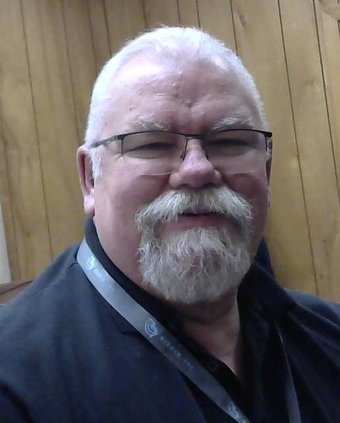When an area resident maxed out his credit cards by playing casino games on his phone, he knew it was time to find some help.
This concern led him to Kevin Ford, outpatient counselor at The Center for Counseling & Consultation. The man remains in treatment and is not gambling now.
Since March is Problem Gambling Awareness Month, Ford wanted to share information about the addiction and let the community know help is available.
Problem gambling is defined as all gambling behavior patterns that compromise, disrupt or damage personal, family or vocational pursuits.
“As with any addiction, all aspects of life are affected,” Ford said. “In the case of gambling, financial issues are by far the biggest motivating factors to get some help.
“People don’t generally seek help when they are winning,” he continued. “But the sooner they seek treatment, the better. The guilt and shame often deter someone from taking this step because the stigma of losing control is very difficult to deal with.”
Gambling is meant to be a form of entertainment “but when it is no longer entertaining, there is a problem,” Ford advised.
Two questions should be asked to determine if gambling has become a problem: Have I ever felt the need to bet more and more money? Have I ever lied to people important to me about how much I gamble?
“And there is actually a third aspect to this,” Ford noted. “Have you ever broken your own gambling rules? For example, you might decide you’re only going to spend a certain amount of money or you’re going to gamble for only a certain amount of time.
“Anytime you break your own rules, it is a red flag.”
The ways to gamble are forever growing and changing. There is the traditional casino-style gambling, as well as racing and sports betting.
“There are also a lot of video games on your phone and March Madness is here,” Ford commented. “Participating in an office bracket during this basketball tournament can be a big trigger for a problem gambler – even if no money is involved.”
During an initial meeting with Ford, a client is assessed and a determination made as to the next best steps. “The treatment is gambling specific and we work with a client to meet their individual goals.”
Some insurance will cover the cost of treatment. However, treatment is available to everyone at no out-of-pocket cost, regardless of income or insurance status.
Ford sees clients at The Center’s offices: Mondays and Wednesdays in Great Bend; Tuesdays in Lyons; and Thursdays in Larned. Zoom meetings can be arranged. His home office is at Mirror in Hutchinson, which has a partnership with The Center.
For more information about problem gambling, contact The Center by calling 620-792-2544 or call the hotline number, 800-522-4700; or visit ksgamblinghelp.com
Guidelines for Responsible Gambling
• Never borrow money to gamble.
• Always gamble with others.
• Never bet more than you can afford to lose.
• Do not gamble as a way to cope with emotional or physical pain.
• Learn about the potential for addiction and the warning signs of problem gambling.
• Include a variety of recreational activities in your life.
• Set limits on how much time and money you spend on gambling.
• Do not skip meals or medications while gambling.
• Know the odds. Expect to lose. Think of the loss as the cost of your entertainment.
• Never gamble with money set aside for living expenses such as rent, food, medications and utilities.





